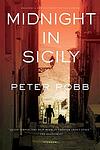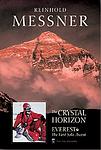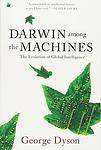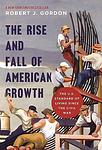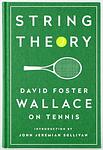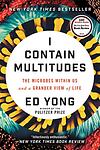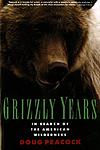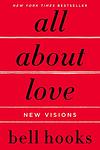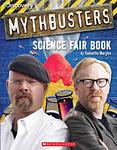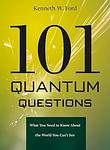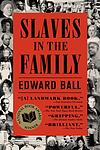The Greatest "Nonfiction" Books Since 1950
Click to learn how this list is calculated.
This list represents a comprehensive and trusted collection of the greatest books. Developed through a specialized algorithm, it brings together 286 'best of' book lists to form a definitive guide to the world's most acclaimed books. For those interested in how these books are chosen, additional details can be found on the rankings page.
Genres
Countries
Date Range
Reading Statistics
Click the button below to see how many of these books you've read!
Download
If you're interested in downloading this list as a CSV file for use in a spreadsheet application, you can easily do so by clicking the button below. Please note that to ensure a manageable file size and faster download, the CSV will include details for only the first 500 books.
Download-
1601. Holy Land by D. J. Waldie
The book is a reflective memoir that explores the transformation of a small town in California into a planned suburb, examining the intersection of personal history with the broader American landscape. Through a series of short, vividly descriptive chapters, the author delves into the mundane yet profound experiences of life in a grid of uniform homes, offering insights into community, identity, and the sacredness found in ordinary spaces. The narrative is interwoven with thoughtful meditations on faith, geography, and the architecture of living spaces, revealing how the physical environment shapes personal and collective experiences.
-
1602. Midnight In Sicily by Peter Robb
"Midnight in Sicily" explores the rich and tumultuous history, culture, and politics of Sicily from the 1970s through the 1990s. The narrative delves into the island's deep-rooted Mafia presence, its influence on social and political spheres, and the courageous efforts of those who have stood against its power. Through a blend of travelogue, cultural commentary, and political analysis, the book paints a vivid portrait of Sicilian life and the complex web of corruption, art, history, and delicious cuisine that defines it. The author's personal experiences and observations provide a compelling backdrop to the broader historical and cultural discussions, making the work both an informative and engaging read.
-
1603. Time, Love, Memory by Jonathan Weiner
"Time, Love, Memory" is a scientific exploration of the genetic basis of behavior, focusing on the groundbreaking research of Nobel Prize-winning biologist Seymour Benzer. The book delves into Benzer's work with fruit flies to uncover the genetic roots of time, love, and memory, and how genes shape behavior. It also provides a comprehensive look at the history and future of genetics and its impact on our understanding of life and evolution.
-
1604. The Crystal Horizon by Reinhold Messner
"The Crystal Horizon" is a gripping account of the author's solo climb of Mount Everest without the aid of supplemental oxygen, a feat never accomplished before. The book not only details the physical and mental challenges faced during the climb but also delves into the philosophical and spiritual journey the author undergoes. The narrative is interspersed with reflections on the history and culture of the Himalayas, the nature of mountaineering, and the author's personal beliefs and motivations.
-
1605. That Bird Has My Wings by Jarvis Jay Masters
The book is a powerful memoir of a man who, despite a tumultuous and troubled childhood marked by abuse and instability, finds himself on death row for a crime he insists he did not commit. Within the confines of his cell, he embarks on a journey of self-discovery and spiritual awakening, finding solace in Buddhist practice and writing. His story is one of transformation and hope, as he uses his experiences to reflect on issues of justice, redemption, and the possibility of inner freedom even in the most unfree places. Through his narrative, he challenges readers to look beyond their preconceptions of guilt and innocence, and to consider the profound impact of compassion and mindfulness.
-
1606. How Proust Can Change Your Life by Alain de Botton
This book is a unique blend of literary biography and self-help, which explores the life and work of Marcel Proust. It delves into various aspects of Proust's writing and personal experiences to extract lessons on how to live better, covering topics such as how to love wisely, how to express your emotions more effectively, how to appreciate life's small pleasures, and how to be resilient in the face of suffering and loss. Through a combination of humor, philosophy, and insightful analysis, the book offers practical advice inspired by Proust's profound insights into human nature, making the case that literature can be both instructive and healing.
-
1607. Confessions Of A Philosopher by Bryan Magee
"Confessions of a Philosopher" is a personal and intellectual autobiography that delves into the profound journey of a thinker exploring the depths of philosophical inquiry. The author reflects on his own philosophical development, discussing how he grappled with existential questions and was influenced by conversations with notable philosophers. Through a blend of personal narrative and philosophical exploration, the book provides insights into the nature of philosophical thought and its impact on the human experience, offering readers a unique perspective on the challenges and rewards of engaging deeply with philosophical ideas.
-
1608. Darwin Among The Machines by George B. Dyson
"Darwin Among The Machines" explores the evolution of technology, tracing its origins from the 17th century to the present, and speculates on its future development. The book delves into the history of computing and artificial intelligence, drawing parallels between biological evolution and technological advancement. It suggests that machines are likely to evolve autonomously and may eventually surpass human intelligence. The narrative combines historical facts with philosophical insights, examining the implications of increasingly intelligent and independent machines on human society.
-
1609. The Undertaking by Thomas Lynch
"The Undertaking" is a profound exploration of life and death through the lens of a poet who doubles as a funeral director. The author delves into the rituals and practices surrounding death, drawing from his professional experiences to offer unique insights into the ways in which funerals reflect and shape human understanding of mortality. With a blend of humor, poignancy, and philosophical reflection, the book examines the intricate relationship between the living and the dead, and contemplates the significance of the rituals that honor those who have passed. Through personal anecdotes and thoughtful observations, the narrative provides a contemplative look at the role of death in life and the importance of acknowledging and respecting it.
-
1610. Change We Can Believe In by Barack Obama
This book outlines the political vision of a prominent U.S. politician during his 2008 presidential campaign. It includes his plans on key issues such as the economy, health care, education, and national security. The book also contains a collection of speeches, policy proposals, and personal essays, offering insights into his beliefs, values, and experiences that shaped his political ideology and leadership style.
-
1611. The Suspicions of Mr Whicher by Kate Summerscale
"The Suspicions of Mr. Whicher" is a true crime novel that explores the infamous Road Hill House murder of 1860 in England. The book follows the investigation of Detective Inspector Jonathan Whicher, one of the earliest detectives in the London police force, as he tries to solve the murder of a three-year-old boy. The case, filled with scandal, intrigue, and mystery, was a sensation in its time and had a profound impact on the public perception of detectives and their methods. The book not only delves into the details of the case but also examines its influence on the detective genre in literature.
-
1612. The Rise And Fall Of American Growth by Robert J. Gordon
This book provides a comprehensive analysis of the unprecedented economic growth in the United States from the late 19th century into the early 21st century, arguing that the period from 1870 to 1970 was a unique era of technological innovation that dramatically transformed living standards. The author contends that the pace of growth and innovation has significantly slowed since the 1970s, and the rapid improvements in quality of life experienced during the earlier period are unlikely to be replicated due to various headwinds, including demographic shifts, rising inequality, and environmental constraints. Through a detailed examination of economic data and historical trends, the book challenges the assumption that future technological advances will continue to drive high levels of economic growth and societal progress.
-
1613. String Theory by David Foster Wallace
This book is a collection of five essays that delve into the world of professional tennis, offering a unique and profound perspective on the sport. Through the lens of an amateur player turned acclaimed writer, the narrative explores the beauty, precision, and psychological depth of tennis, weaving personal anecdotes with professional analysis. The essays not only highlight the physical and mental demands of the game but also reflect on the broader human experience, touching on themes of ambition, discipline, and the pursuit of excellence. The author's keen observations and distinctive voice bring to life the world of tennis in a way that resonates with both aficionados of the sport and readers new to the game.
-
1614. The Gene by Siddhartha Mukherjee
This book provides a comprehensive exploration of the history and science of genetics, tracing its development from the earliest experiments on pea plants to the cutting-edge advancements in gene editing technologies. Through a blend of scientific insights, historical narratives, and personal stories, the text delves into the complexities of heredity, the moral implications of genetic manipulation, and the potential future of human evolution. It aims to demystify the concept of the gene for a general audience, illustrating how these fundamental units of heredity influence not only physical traits and diseases but also contribute to our understanding of identity and kinship.
-
1615. I Contain Multitudes by Ed Yong
This book delves into the complex and often overlooked world of the microbiome, the myriad of microscopic organisms living within and around us. Through engaging storytelling and rigorous science, it explores how these tiny entities influence everything from our health and immune system to our behavior and evolution. The narrative weaves together fascinating examples from across the natural world, demonstrating how microbes are not just pathogens to be eradicated but vital partners in the planet's ecosystems. It challenges our perceptions of microbes, revealing how they are integral to our past, present, and future.
-
1616. Grizzly Years by Doug Peacock
"Grizzly Years" is a memoir of a Vietnam War veteran who finds solace in the wilderness of the American West, specifically in observing grizzly bears. The book chronicles his years of tracking these majestic creatures across the Rockies and Yellowstone, and his efforts to protect them from human threats. The narrative intertwines the author's personal journey of healing from war trauma with his passionate advocacy for grizzly bear conservation.
-
1617. All About Love by bell hooks
This book delves into the multifaceted nature of love, challenging the conventional wisdom that often leads to misunderstandings and heartache. It proposes a transformative approach to love, advocating for its recognition as a combination of care, commitment, trust, knowledge, responsibility, and respect. The author argues that our cultural assumptions about love are flawed and that by embracing a more nurturing and empathetic view, individuals can foster healthier relationships and a more compassionate society. Through a blend of personal anecdotes, philosophical insights, and practical wisdom, the book invites readers to reconsider their beliefs and behaviors around love, and to cultivate it as a verb rather than just an emotion.
-
1618. Newjack: Guarding Sing Sing by Ted Conover
The book is a first-hand account of the author's experience working as a correctional officer at Sing Sing prison in New York. Through his narrative, the author provides an in-depth look at the American penal system, revealing the harsh realities of prison life, the struggles faced by inmates, and the moral and ethical dilemmas faced by the staff. The author's year-long journey as a prison guard offers a unique perspective on the often overlooked aspects of the criminal justice system.
-
1619. Mythbusters Science Fair Book by Samantha Margles
The book serves as a practical guide for students looking to create exciting and educational science fair projects. It draws inspiration from the popular television show that tests the validity of various myths and legends, translating these into engaging experiments suitable for a science fair setting. The book provides step-by-step instructions for a variety of experiments, covering topics from physics to chemistry, and encourages critical thinking and scientific inquiry among young readers. Each project is designed to be both fun and informative, helping students understand key scientific concepts through hands-on learning and experimentation.
-
1620. 101 Quantum Questions by Kenneth W. Ford
This book provides a comprehensive exploration of the fundamental concepts in quantum physics, addressing 101 questions that cover a wide range of topics from the basics of quantum mechanics to more complex phenomena like entanglement and quantum computing. Written in an accessible question-and-answer format, the book aims to demystify the often perplexing world of quantum physics, making it understandable for readers with varying levels of scientific knowledge. Each question is carefully explained with detailed yet clear explanations, making complex theoretical concepts approachable for those curious about the underlying principles that govern the quantum world.
-
1621. Exoplanets And Alien Solar Systems by Tahir Yaqoob
"Exoplanets and Alien Solar Systems" provides a comprehensive overview of the field of exoplanet research, exploring the methods used to discover and study planets beyond our solar system. The book delves into the various types of exoplanets discovered, the characteristics of these distant worlds, and the implications for understanding our place in the universe. It also discusses the technological advancements and scientific principles underlying exoplanet detection and analysis, offering insights into future prospects and challenges in the field. This work serves as both an informative guide for those new to astronomy and a detailed resource for seasoned researchers interested in extraterrestrial planetary systems.
-
1622. Operation Mincemeat by Ben Macintyre
The book is a gripping account of one of the most successful and bizarre deception operations of World War II, orchestrated by British intelligence. It tells the true story of how British officials concocted an elaborate scheme to mislead Nazi Germany about the Allies' next strategic move by planting false information on a corpse dressed as a British officer. The body, carrying fake secret documents suggesting an Allied invasion of Greece and Sardinia, was set adrift to be found by Axis forces. The ruse, hinging on the authenticity of the planted persona and the documents he carried, aimed to divert German forces away from the actual target: Sicily. The operation's success played a crucial role in the overall Allied campaign in the Mediterranean, showcasing the ingenuity and daring of wartime espionage.
-
1623. 1,000 Years Of Annoying The French by Stephen Clarke
This book is a humorous and informative exploration of the longstanding rivalry between England and France, delving into a millennium's worth of historical conflicts, cultural misunderstandings, and entertaining anecdotes. The author examines key events and figures that have shaped the relationship between the two nations, from the Norman Conquest to modern-day politics, all while debunking myths and offering witty insights into how these two European neighbors have continued to eye each other with a mix of animosity and fascination. Through its engaging narrative, the book reveals the complexities and idiosyncrasies of Anglo-French history, showcasing how the past thousand years have been marked by both mutual annoyance and grudging admiration.
-
1624. Caravaggio by Andrew Graham Dixon
This book provides an in-depth exploration of the life and work of the revolutionary Italian painter known for his dramatic use of light and shadow, which came to define the Baroque style of painting. The biography delves into the artist's tumultuous personal life, marked by violent encounters and a temper as fiery as his groundbreaking artistic talent. Through meticulous research, the author reconstructs the painter's journey from his humble beginnings to his rise to fame and his ultimate tragic downfall, offering insights into his masterpieces and his enduring influence on the art world.
-
1625. Slaves In The Family by Edward Ball
"Slaves in the Family" is a non-fiction book that explores the deep and complex history of slavery in America through the personal journey of the author, who delves into his own family's past. The narrative reveals the author's ancestors were prominent slaveholders in the South, and he confronts this painful heritage by tracing the descendants of the enslaved people his family once owned. Through meticulous research and interviews, the book weaves together the stories of black and white families, uncovering the shared history and enduring impacts of slavery on both groups. The work is a profound examination of guilt, responsibility, memory, and reconciliation in the context of America's racial history.
Reading Statistics
Click the button below to see how many of these books you've read!
Download
If you're interested in downloading this list as a CSV file for use in a spreadsheet application, you can easily do so by clicking the button below. Please note that to ensure a manageable file size and faster download, the CSV will include details for only the first 500 books.
Download
